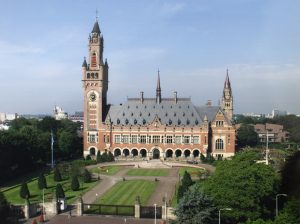 This week, the Obiang case which took place in France in 2017 and resulted in the son of the President of Equatorial Guinea being given a suspended jail sentence, the confiscation of assets worth €107 million and a €30 million fine, goes in front of the International Court of Justice.
This week, the Obiang case which took place in France in 2017 and resulted in the son of the President of Equatorial Guinea being given a suspended jail sentence, the confiscation of assets worth €107 million and a €30 million fine, goes in front of the International Court of Justice.
What is the International Court of Justice?
The International Court of Justice was established in 1945 under the United Nations Charter and is essentially the UN court, responsible for settling disputes between countries on issues of international law and in providing clarifications on international law for other UN bodies, like the UN General Assembly.
So why is the Obiang case there?
The Obiang case is there, essentially, because Equatorial Guinea alleges that France has done two things. Firstly they argue that the case meant that France did not fulfill its obligations under the United Nations Convention Against Corruption to respect the sovereignty and to not interfere with other countries. Secondly, they argue that part of the buildings confiscated in the case were actual Equatorial Guinean property and therefore subject to immunity, even though France maintains they were for the private use of Theodor Obiang.
And why is this important?
It is important as the Obiang case was the first time a country had prosecuted a sitting high-level politician of another country for grand corruption and had confiscated the assets belonging to that official. A ruling on its legality in international law, particularly in respect to rules on diplomatic immunity, is likely to have effect the possibility that similar actions are carried out in the future.
When will we know?
At the moment the case is just in the early stages, with the court currently hearing on preliminary objections raised, so it is likely to take some time, if it proceeds at all any further. Watch this space.
